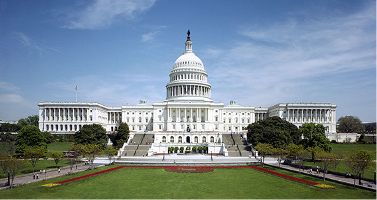Washington, DC – A popular topic among patent lawyers across the country is the proposed “patent reform” legislation being debated and considered by members of the House of Representatives and the Senate.  Titled the “Leahy-Smith America Invents Act,” the pending legislation in the House, H.R. 1249, passed by a 304-117 vote on June 23, 2011. A version in the Senate, S. 23, passed on March 8, 2011, by a vote of 95-5. The bill will go through the reconciliation process after Labor Day, and President Obama has indicated that he will sign the law.
Titled the “Leahy-Smith America Invents Act,” the pending legislation in the House, H.R. 1249, passed by a 304-117 vote on June 23, 2011. A version in the Senate, S. 23, passed on March 8, 2011, by a vote of 95-5. The bill will go through the reconciliation process after Labor Day, and President Obama has indicated that he will sign the law.
“First-to-File” System
Notably, the proposed legislation would switch the United States from a “first-to-invent” to a “first-to-file” system. What this means is that, in order to gain patent protection for his or her invention, an inventor would have to be the first person to actually file a patent application claiming the invention. Under current law, through the “interference” process, an inventor may challenge an earlier-filed patent application by arguing that he or she had an invention date prior to the applicant’s filing date. Proponents of this change believe it would simplify the application process and bring U.S. patent law into harmony with the laws of all other countries, which already operate on the “first-to-file” system. Critics of the “first-to-file” system say that it disadvantages independent inventors, who often lack the resources to support early-stage patent filings for their inventions.
Post-Grant Review
The legislation would also add a new window for “post-grant review” following the issuance or re-issuance of a given patent. This procedure would allow a third-party to challenge the patent on a broader range of issues than is currently available via reexamination. A post-grant review petitioner would have to show that “it is more likely than not” that at least one of the claims challenged in the petition is unpatentable or establish that the case raises “a novel or unsettled legal question that is important to other patents or patent applications.”
“Fee Diversion”
One important difference between the two versions of the legislation relates to funding for the United States Patent and Trademark Office (“USPTO”). The bill passed by the Senate would put an end to the practice of “fee diversion,” by which patent examination fees collected by the USPTO are placed into the federal government’s general fund.
Reexaminations
Among the other important provisions in the bill are several relating to the patent “reexamination” process. Reexaminations are a procedure by which a patent holder, third-party, or the Director of the USPTO can request that an issued patent be reconsidered by a USPTO examiner, in order to verify the patentability of the invention as claimed.
There are two types of reexaminations: ex parte and inter partes. Ex parte reexaminations, once initiated, involve only the patent holder and the USPTO; members of the public may not actively participate in the proceedings. In an inter partes reexamination, the third-party requesting the proceeding actively participates in it and files submissions with the USPTO.
Among the proposed changes to the reexamination process is the new standard for granting a request for an inter partes reexamination: a requester will have to show “a reasonable likelihood that [it] would prevail with respect to at least 1 of the claims challenged in the request.” The current standard for granting such a request is set forth at 35 U.S.C. § 312(a) and requires a showing of a “substantial new question of patentability.”
As for the ex parte type of reexamination, it is not nearly as affected under the proposed legislation. Under H.R. 1249, an appeal in any such reexamination pending on, or brought on or after, the date of the enactment, will go to the Federal Circuit appeals court, rather than federal district court. The standard for granting a request for an ex parte reexamination will still be “a substantial new question of patentability affecting any claim of the patent.” See 35 U.S.C. § 303(a).
Miscellaneous Provisions
A complete discussion of the pending legislation is outside the scope of this post, but there are a number of other provisions worthy of note:
- The bills provide that any strategy for reducing, avoiding, or deferring tax liability, whether known or unknown at the time of invention or application for patent, shall be deemed insufficient to differentiate a claimed invention from the prior art (essentially abolishing “tax strategy” patents).
- False patent marking lawsuits would be eliminated, except for those filed by the U.S. government or a competitor who can prove injury.
- Also, although an inventor, in his or her patent application, will still be required to recite the “best mode” for accomplishing his or her invention, the proposed legislation would prevent a failure to disclose the best mode from being used as a basis for invalidating an issued patent.
- The proposed law would additionally make it easier for corporate entities to file patent applications directed to inventions conceived by employees who will not cooperate in executing the applications or cannot be found after a diligent search.
Practice Tip: In particular, the inter partes reexamination proceeding can factor into litigation strategy: a third-party involved in a patent infringement lawsuit may want to consider requesting such a reexamination of the patent at issue. If such a request is made and granted, that will be grounds to stay the litigation, pending the outcome of the reexamination. The reexamination could result in a lessening of the patent’s scope or even invalidation of the patent.
 Indiana Intellectual Property Law News
Indiana Intellectual Property Law News

